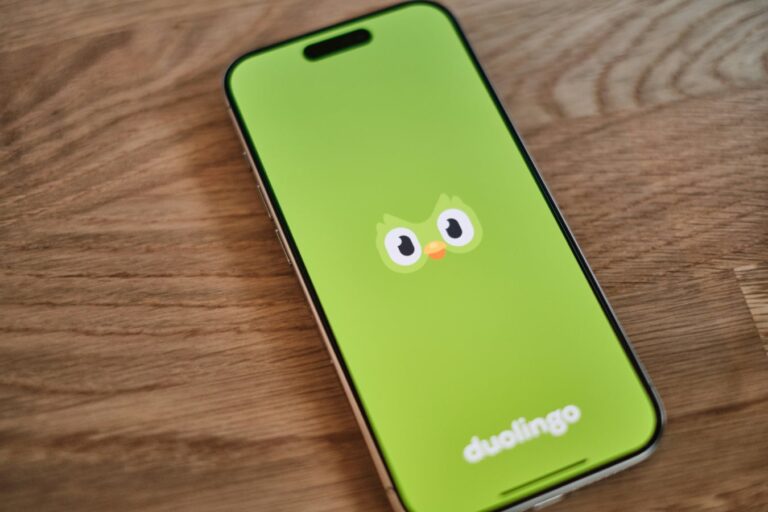Duolingo has just validated fears about artificial intelligence taking jobs, announcing it will replace contracted employees with bots. A note from CEO Luis von Ahn said the company will become “AI-first” and, as part of this, will “gradually stop using contractors to do work that AI can handle.”
Hiring at the popular language learning app may slow, as von Ahn said that “headcount will only be given if a team cannot automate more of their work.” Duolingo is also incentivising AI use, announcing that it will be considered in performance reviews and sought out when recruiting.
Duolingo’s CEO insisted his firm “cares deeply about its employees” and the changes aren’t “about replacing Duos with AI.” He has also committed to providing said Duos with training, mentorship, and tooling to support them during the impending shakeup, which will involve rebuilding some company systems “from scratch.”
This is not the first time Duolingo has confirmed AI-driven layoffs. In January 2024, Duolingo cut 10% of its contractor workforce as the company shifted more content creation responsibilities to AI tools. An anonymous former employee attributed the rise in AI use to time and cost savings.
Use of AI to create Duolingo’s learning materials may result in “small hits on quality”
von Ahn’s letter explained that AI needs to be a focus at Duolingo as “to teach well, we need to create a massive amount of content, and doing that manually doesn’t scale.” It appears that he is willing to sacrifice the standard of Duolingo’s learning resources to achieve that goal. “We’d rather move with urgency and take occasional small hits on quality than move slowly and miss that moment,” he wrote.
Some users are concerned about how the integration of AI-generated content in the Duolingo app might affect their learning experience. One commenter said: “If I wanted AI-generated language learning content, I would go ask ChatGPT for my own personalized tutorial, where I can get exactly what I ask for and I *know* that none of the output is genuinely trustworthy.”
Duolingo follows suit with companies including Shopify and Klarna
Earlier this month, Shopify CEO Tobi Lütke instructed employees that before requesting additional headcount or resources, they must first demonstrate that they “cannot get what they want done using AI.” Using the likes of ChatGPT was a “fundamental expectation” of all staff and, like Duolingo, it would be taken into consideration during performance reviews.
Fintech company Klarna uses an AI chatbot that now performs the equivalent work of 700 customer service agents, CEO Sebastian Siemiatkowski told CBS in March. He has been outspoken about AI’s capabilities, telling Bloomberg that he believes AI can already handle all human jobs.
SEE: What is Fair in an AI-Enabled Workplace? Leaders Are Struggling to Answer This Question
Even as modern digital companies openly champion AI, a growing number of workers are pushing back. A March study found that 31% of employees have refused to use AI tools or outputs, with their desire to sabotage their company’s AI strategy stemming from fears of job displacement and dissatisfaction with the AI tools provided.
There is also evidence that, at a certain level, company AI use can have diminishing returns. Last year, Carnegie Mellon University created a simulated company staffed entirely with AI agents from leading tech firms to assess their performance in real-world office tasks. The results revealed that even the most advanced AI models struggled significantly, with the top performer, Claude 3.5 Sonnet, completing less than 25% of its assignments.

